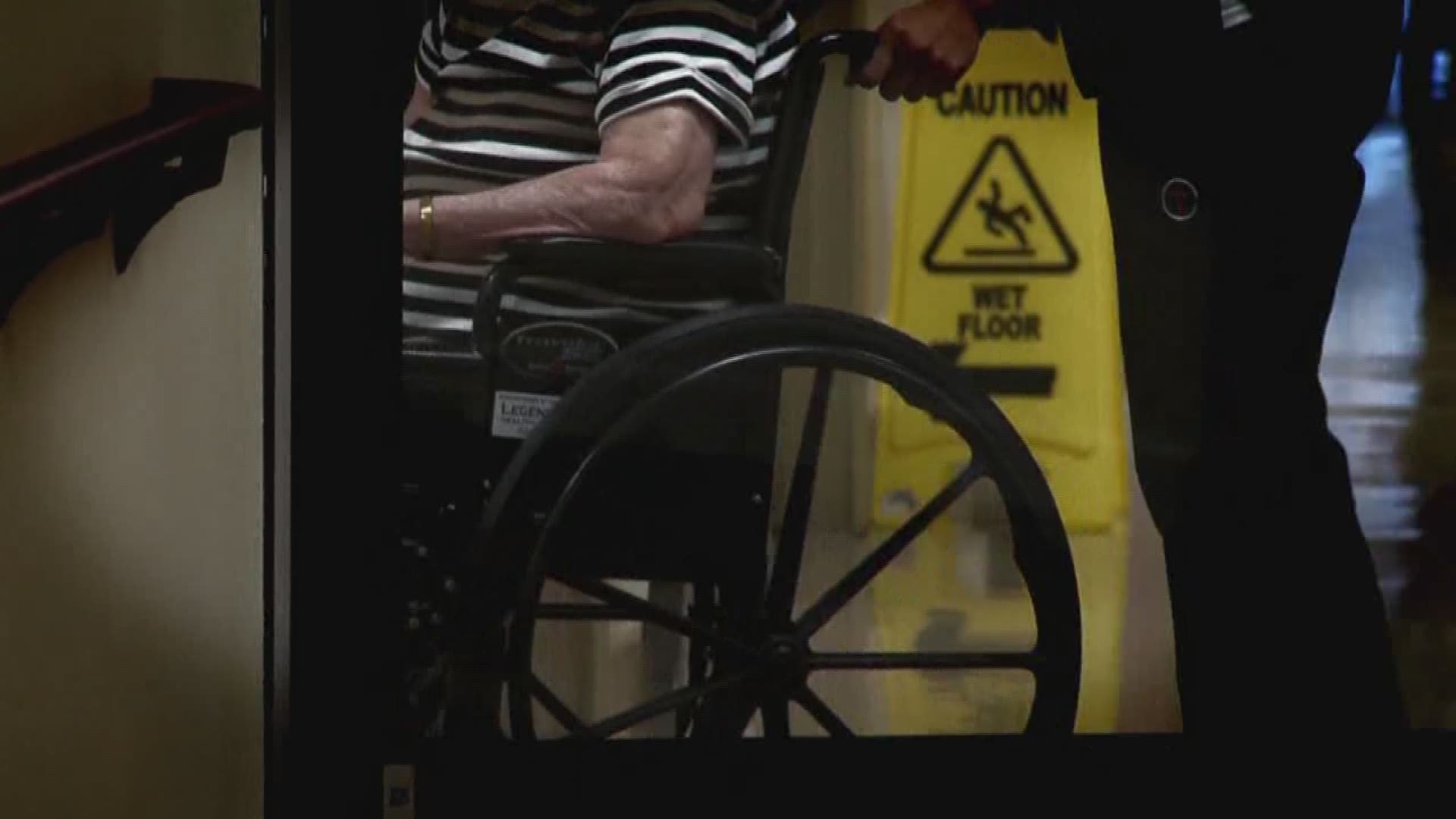The Commission on Aging says one in 10 people over the age of 50 is the victim of abuse, and half of all men and women suffering from dementia are abused. The abuse can happen in a senior living facility, but the Nampa Family Justice Center says most times, family members are the perpetrators.
"People don't want to think about it," said Lana McCullough, senior resource coordinator at the justice center.
McCullough says elder abuse can happen in the form of domestic violence, neglect, financial exploitation or any another form abuse.
"I was a wreck," said Barbara Ann Hoffman-Valdetero, who was a victim of elder abuse. "I know it wasn't good."
Hoffman-Valdetero was a victim of emotional and financial abuse by her partner for many years, until she says it got physical and her teeth were knocked out.
"I called the police scared to death behind a closed door in my home," she said.
Dee Bingman's story is much different. Her parents were victimized by her brother.
"My mom called and said 'help me, I'm locked in and nobody is here. I'm afraid'," said Bingman.
After her mother passed away, Bingman says her dad was the sole victim.
"I think he really didn't want to admit it was his own son doing the things to him that were abusive," she said.
Bingman's brother was supposed to be her father's caretaker, but there was no care, she says, only neglect and theft. Even when Adult Protective Services came to investigate after a request from the VA, her dad said everything was fine.
"Parents will protect their kids to the end," said McCullough. "The thing I hear the most is 'I don't want them to get in trouble. I don't want the police called.'"
McCullough says victims of family abuse want to ignore it.
"You don't want to think they would ever hurt you," she said. "They just suffer in silence."
That's why family members must be vigilant. McCullough suggests getting to know who your older loved ones are spending time with, because too often, victims of abuse won't voluntarily come forward.
"They will tear you down, they will break you down, they'll make you believe that no one cares about you," said Hoffman-Valdetero. "You don't think there's anywhere to go."
After Hoffman-Valdetero finally called 911 on her significant other, police directed her to the Nampa Family Justice Center.
"It's important to know that there are places to go," said Hoffman-Valdetero. "You can get your smile back."
Bingman also found help from the nonprofit.
"They walked me through everything and took me to court and helped me get custody of my dad," she said.
Her dad lived his final years in a happy and loving environment. Although it's hard to relive what happened, she believes it's for an important purpose.
"If I can stop someone else from going through the same things and the same problems then that's what I'm here for," said Bingman. "I've accomplished something in my dad's name."
McCullough says it's also important to keep a watchful eye on your older neighbors. Below are different kinds of elder abuse and signs to look for, according to the Administration on Aging.
Physical abuse: unexplained burns, cuts, bruises and bleeding. Sprained or broken bones. Injuries that happen over and over. The person doesn't want to see a doctor about his wounds.
Sexual abuse: torn or bloody clothes, especially underwear. Sexually transmitted diseases. Bruises, especially on both sides of the body or around the breasts or genitals. Bleeding from the vagina or bottom.
Psychological abuse: Act withdrawn or frightened. Have changes in his behavior that you can't explain. Rock back and forth, suck, or mumble to himself. Be depressed, confused, or lose interest in things he once enjoyed.
Financial abuse: Withdrawals from bank accounts that your loved one can't explain. A new "friend" who may be taking financial advantage of him. Legal documents that have been changed or disappeared. Missing financial statements. Unpaid bills, utilities that are shut off, or threats of eviction. Signatures that seen to be forged.
Neglect: He's messy or unclean. He might have dirty clothes, unkempt hair, or skin rashes. He loses weight suddenly or isn't hungry anymore. Bedsores. Missing or broken dentures, eyeglasses, hearing aids, or walkers.
If you see any of these signs in a loved one, friend, or neighbor, speak up right away. It could save the person's life. There are groups that can step in to help older people who are in danger.

